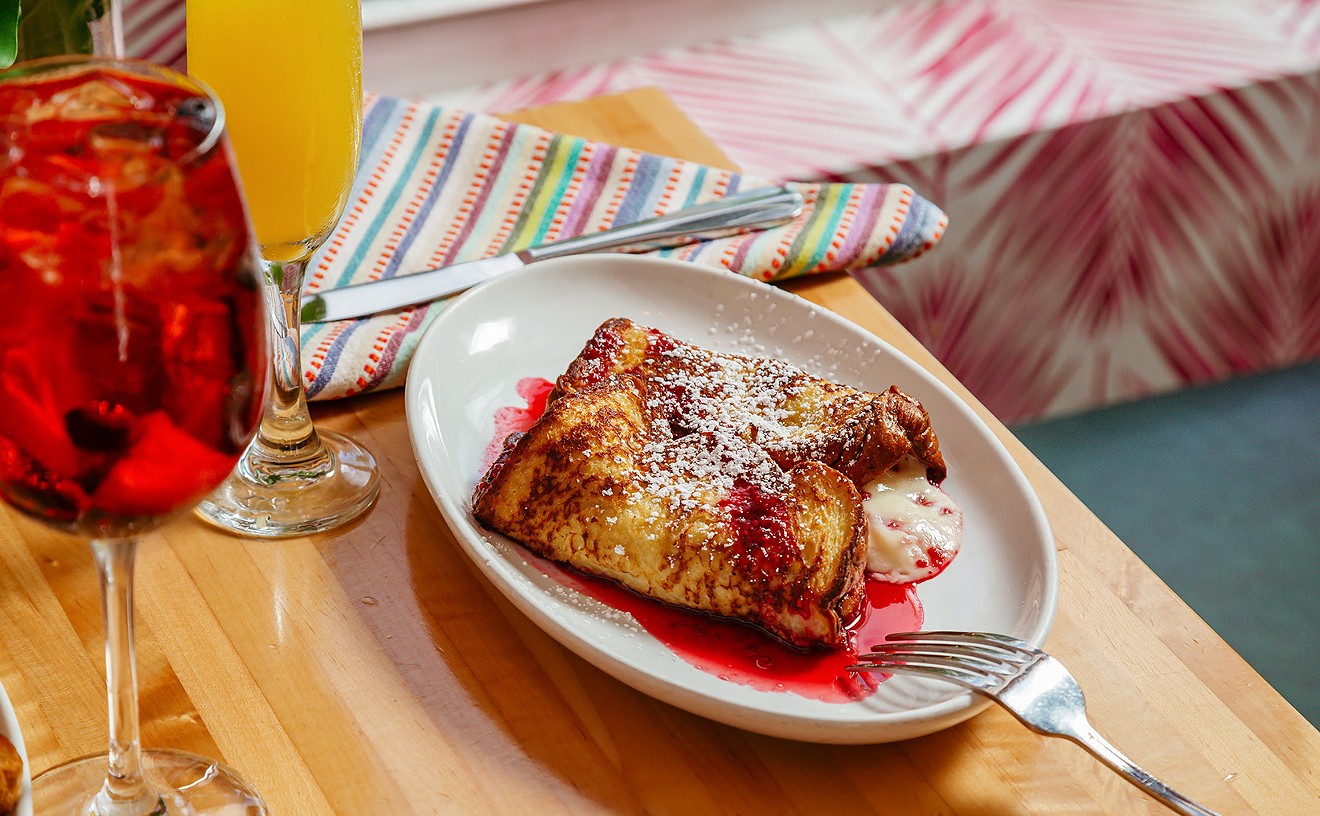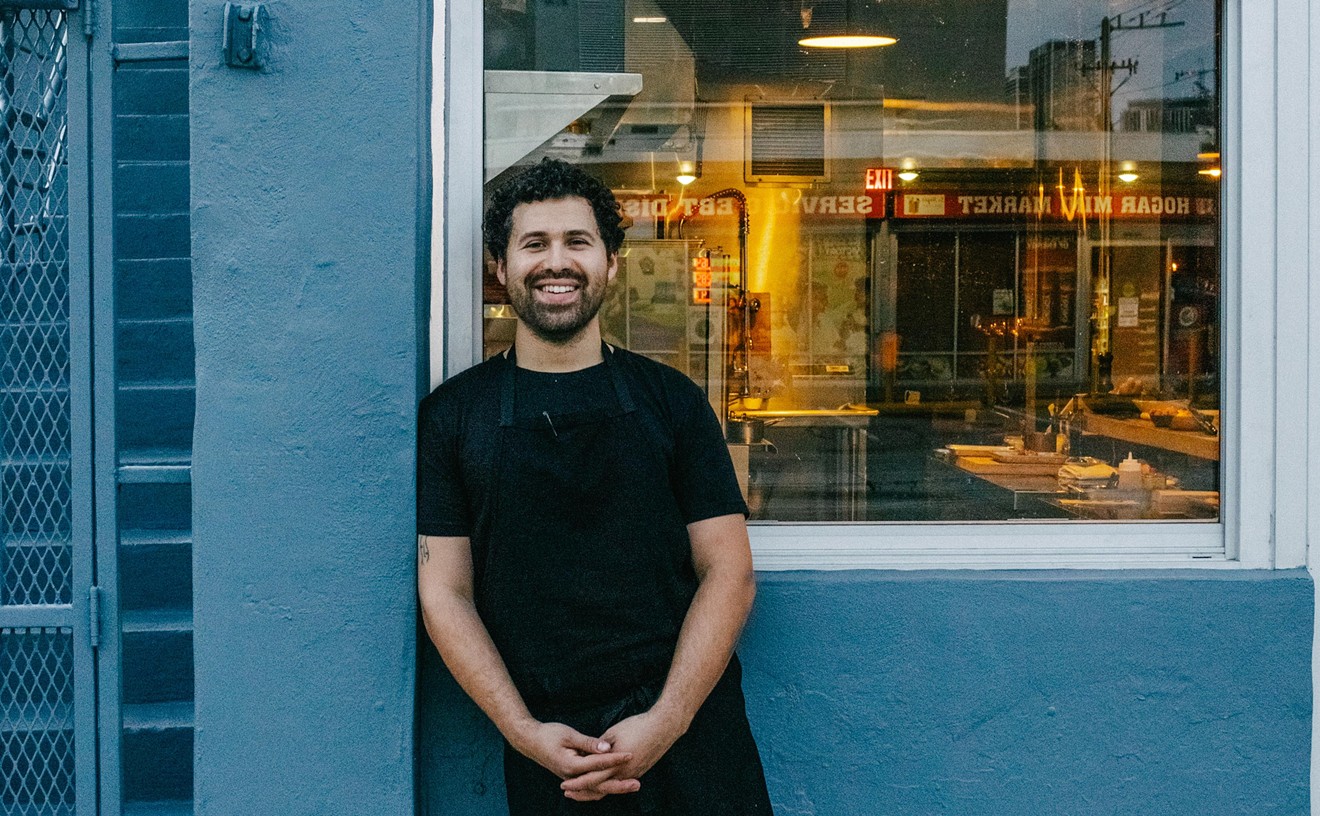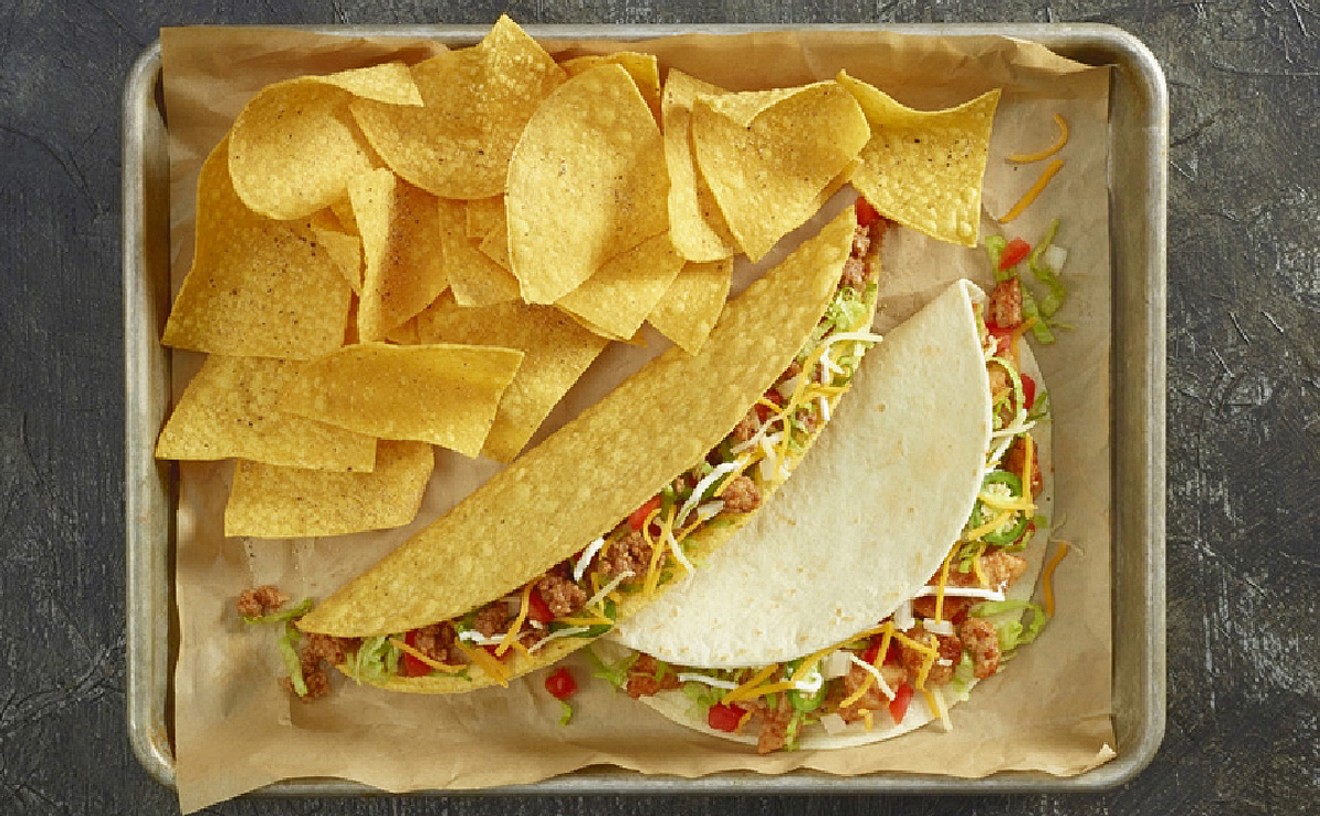Like pizza and sushi, it seems that Middle Eastern falafel balls have become an international foodstuff. I've downed these ground, spiced, and deep-fried chickpea miniboulders, shoved into pita bread and sauced with tahini (sesame), from Holland to Spain to Peru. Granted, the stuff in the rain forest was pretty awful. Sesame seeds weren't available, so the cooks substituted peanuts to make the tahini. And the falafel itself was so hard that the little balls skittered off our plates when we tried to pierce them with our forks. We used them to bait our hooks the next day, and the piranha found them delicious.
Yet in Miami, a supposedly international city, falafel is a rare commodity. I practically rejoice when a Middle Eastern eatery opens. Now, with the late-October unveiling of the new-and-improved Daily Bread Marketplace, located on 27th Street just off South Dixie Highway in that little section of Miami west of Coconut Grove and northeast of Coral Gables, good falafel has become readily available. Not only can you buy a prepackaged mix to make at home, but you can also feast on falafel on the premises; there are approximately 30 tables inside and another 40 on a terrace.
Daily Bread's proprietors, the Mazzawi siblings (brothers Monem, Toufic, Jawdat, and sister Niva Bishouty) have been dishing up delicious falafel since 1975, although few people knew it back then. After the entire family emigrated from Israel in 1969, father Neman, head of this Christian Arab clan, bought a market called Cedars of Lebanon on Seventeenth Avenue (a couple of miles north of the present location) to run with his children. They changed the name to Daily Bread Marketplace, and at the insistence of mother Abla, began selling pita sandwiches garnished with lettuce, tomatoes, shaved red onions, and shredded cabbage salad at local fairs and crafts shows. The falafel proved so popular that the Mazzawis added a small sandwich counter for takeout.
In 1980, Daily Bread started a baking operation, supplying supermarkets such as Wild Oats with pita and other delicacies, notably spinach pies and baklava. Miami restaurants like News Cafe and El Manara as well as some local cruise ship lines serve the family's pliable pocket bread. The Mazzawis also bake pita for private brands such as Arnold and Holsum bakeries, but until 1996 they had no plans to expand into a full-scale market and falafel shop.
"People wanted to sit down, so we said, okay, sit down," Monem Mazzawi says with a shrug. They hired a contractor to build an 8000-square-foot complex on 27th Street that includes two buildings and checks in at almost four times the size of the first market. (The original location closed three days after the new one debuted.) "It's wonderful to see people enjoying what we're doing," Monen adds. "We're always thanking the Lord for all this."
"All this" is not just a market or a bakery or a restaurant, but rather a combination of the three. It's almost impossible to shop for groceries (spices, nuts, olives) without being tempted by the aromas emanating from the deli case and counter at the east end of the store, where there's usually (already!) a line of impatient customers perusing the prepared dishes. These range from daily specials such as lamb and string bean stew served with orzo pilaf and oregano-flecked salad, to standards like spinach and feta cheese phyllo triangles. Order from the helpful counter staff, pay the cashier (there are separate registers for deli fare and market goods), and grab some plastic silverware and a table. (That last part can be a trial during peak hours.)
Thick and rich lentil soup (with a side of fresh pita) is a bargain lunch hearty enough to serve as a meal on its own. Parsley-heavy tabbouleh salad, dotted with cracked wheat, bits of juicy tomatoes, and onions, is a cooler and less filling choice. Pitas stuffed with falafel, gyro meat (spiced and pressed lamb roasted on a rotating skewer), kebab meat (skewered lamb), or kibbe (cracked wheat and meat) are probably Daily Bread's most popular items. All of these dripped with tahini and were garnished with iceberg lettuce, tomatoes, shaved red onions, and a shredded cabbage salad that added a vinegary zing. Identically prepared shish tawook, or chicken gyro, might appeal to fat-conscious folks, though I thought the chicken slices were slimier and less textured than the lamb. Much better were the kafta kebab (ground lamb shaped into balls) and lamb kebab (chunks of the juicy meat).
In the past the Mazzawis have employed cooks from several Middle Eastern countries and regions; currently, Antoinette Jreij, from Lebanon, and Arafat Abrahim, a Jordanian, share kitchen duty. "We also invite friends of different backgrounds to contribute recipes," Monem explains. "Then we try to perfect them." These include finger foods such as Arabic lahem bil ajine, an open-face pastry sprinkled with savory ground beef (or, more traditionally, lamb) and pine nuts; Lebanese kibbe (cracked wheat and ground beef formed into egg-shaped balls and fried); and Asian spring rolls -- about as expected here as falafel in the rain forest.
And yet the bakery counter may be Daily Bread's most irresistible draw. The sweets -- pistachio baklava in a variety of shapes and sizes, honey-almond cakes, semolina-pistachio cakes, and bird's-nest katiffe -- are excellent, drenched with butter, honey, and rosewater. Also recommended: k'nafi, a delicate cheese pastry topped with lightly sugared shreds of phyllo dough.
The Mazzawis are entertaining the possibility of expanding their operation to include what Monem calls "a real restaurant with waiters." But first, he admits, "We need to acquire more parking spaces." True enough. Unlike the Daily Bread Marketplace, which has yet to overreach its potential, the eensy lot has already attained maximum capacity.
It's almost impossible to shop for groceries without being tempted by the aromas emanating from the deli case and counter.
Daily Bread Marketplace 2400 SW 27th St, Miami; 305-856-5893. Open Monday to Saturday from 8:00 a.m. till 8:00 p.m; Sunday from 11:00 a.m. till 4:00 p.m.
Lentil soup $1.50
Falafel $3.50
Lamb kebab $4.50
Tabbouleh $5.00
Baklava $.65 -- $1.00










